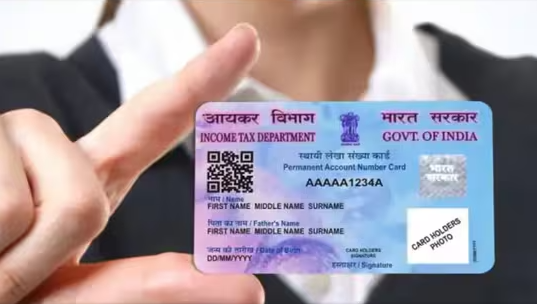What is Section 43B of Income Tax Act?
Section 43B of the Income Tax Act deals with the deduction of certain expenses under the head of profits and gains of a business or profession (PGBP). Suppose you run a business and you have various expenses like taxes, employee benefits, interest on loans, and more. Section 43B of Income Tax Act says these certain payments can only be claimed as expenses in the year it was actually paid and not in the year they incurred. However, this rule doesn’t apply to every expense, it only applies to specific legal payments. So it is important for businesses to understand which payments come under this rule and make sure they handle their finances accordingly to get the most benefit.
For example, if Alex bought an oven for his cafe in July 2018 but paid for it in November 2018, he can claim the deduction for the oven’s cost in the year ending March 2019 when he actually made the payment, not in the year when he bought it.

Deductions Come Under Section 43B
There are mainly seven types of payments that come under Section 43B of Income Tax Act–

-
Employee Welfare Funds
This is the money paid by the employer for employee benefits like provident funds, gratuity, retirement funds, etc.
-
Tax Payments
Money paid to the government as taxes, including any interest paid on these taxes, can be deducted.
-
Bonus or Commission
This is the amount paid to employees for services rendered, excluding dividends paid to shareholders.
-
Interest on Loans and Advances
This includes interest paid on loans and advances obtained from scheduled banks under the terms and conditions of agreements.
-
Leave Encashment
This is the money paid to employees for unused leave.
-
Payments to Indian Railways
Expenses paid to Indian Railways are deductible if cancelled in the fiscal year 2016-17 or earlier. If paid after the due date for submitting returns, it's deductible in the year of payment.
-
Interest on Loans
It includes the money paid on loans from state financial corporations or public financial institutions, under the defined guidelines.
Do you want to know more about our hihellohr Software?
Punishment For Failure to Pay MSMEs Within Specific Time Interval
If there’s a delay in paying an MSME (Micro, Small, and Medium Enterprises), interest is charged.
- Interest Rate: It’s compound interest at the bank rate notified by the Reserve Bank of India (RBI).
- Start Date for Interest: It’s either the agreed date or the appointed day.
- This interest cannot be deducted as an expense according to the Income-Tax Act (ITA), 1961.

Benefits of Clause (h) of Section 43B for MSMEs:
Smooth Payment Cycle
MSMEs benefit from timely payments within 15 days without a written agreement or 45 days with an agreement. This ensures consistent cash flow important for their sustainability and growth.
Better Bargaining Power
MSMEs can negotiate payment terms confidently with larger enterprises. This assurance of timely payment helps in securing favourable terms.
Reduced Disputes
Timely payments minimize potential disagreements and legal issues appearing due to unpaid dues. This helps in saving time and resources for both MSMEs and larger businesses, leading to smoother transactions.
To Claim Deductions Under Section 43B, Certain Conditions Must be Met

-
Actual Payment
The expense must have been actually paid, not just incurred in that year to claim a deduction under section 43B. For example, if an employer announces a bonus but hasn't paid it by the end of the financial year, it can't be claimed as a deduction.
-
Payment before the Due Date
The payment must be made on or before the due date specified by the relevant law. For example, ESI contributions must be paid by the 15th of each month.
-
Compulsory Payment
The payment must be mandatory, not optional. For example, any commission paid to an employee should be part of the employment contract.
-
Evidentiary Payment
Above all payments must be supported by written documentation. Cash payments cannot be claimed as deductions under Section 43B.
Who is More Likely to be Affected by Section 43B(h)?
Section 43B affects businesses that are concerned with Micro, Small, and Medium Enterprises (MSMEs). Moreover, these businesses must be careful in ensuring they pay these MSMEs on time. Deductions for late payments to MSMEs can only be claimed when the payment is actually made and not when it is supposed to be paid. This means businesses might need to adjust how they manage their money to make sure they can pay MSMEs on time, or else they will face tax consequences for delayed payments.
This amendment shows the importance of following the payment deadlines specified in the Micro, Small, and Medium Enterprise Development (MSMED) Act of 2006 to take advantage of tax deductions effectively.
Moreover, tax auditors must report any unpaid dues to MSMEs in form 3CD of the Tax Audit Report. The business must then add back this disallowed amount to its total income.
How to Ensure Compliance with Section 43B?
To comply with section 43B of Income Tax Act, businesses need to adjust how they handle payments and make sure they have the right documentation and systems in place. They should verify if their vendors are registered as Micro, Small, and Medium enterprises (MSMEs) and keep track of payment deadlines accurately.
Although it is crucial for businesses to completely understand these requirements and stay aware of them. By being proactive and managing vendor payments carefully, they can handle these rules successfully.
Section 43B of Income Tax Act presents a challenge for businesses, but carefully understanding the provision and taking the right approach can lead to meeting the compliance requirements successfully. This provision highlights the importance of supporting the MSME sector, which is very important for the Indian economy. As the government provides further clarification, businesses should stay informed and adaptable to remain compliant and maintain positive relationships with their vendors.
Final Words
In conclusion, complying with Section 43B of Income Tax Act requires businesses to adjust their payment processes, stay aware of MSME registration, and track payment deadlines regularly. However, it’s all about making sure payments are made on time. Understanding and following the rules is important for businesses to stay legal and manage their finances well.
Related Articles:




